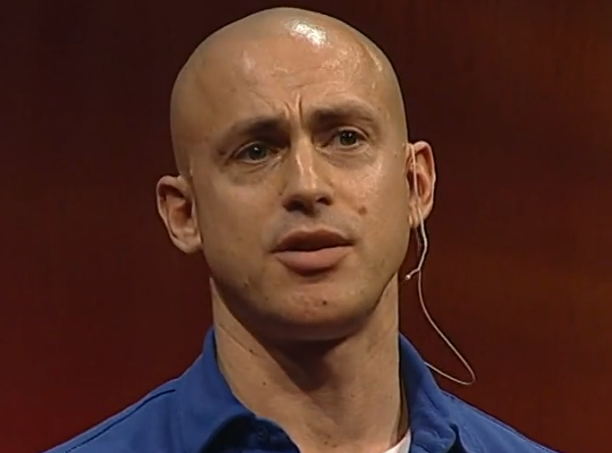I guess we all deal with stress in different ways.
我想我们应对压力都有不同的方式。
Some people will bury themselves in work, grateful for the distraction.
有些人会把自己埋头到工作中,用以分心不去想。
Others will turn to their friends, their family, looking for support.
另一些人则会从朋友和家庭中寻求帮助。
Some people hit the bottle, start taking medication.
还有些人酗酒,或开始使用药品。
My own way of dealing with it was to become a monk.
我自己当时的方式则是成为一名僧侣。
So I quit my degree, I headed off to the Himalayas, I became a monk, and I started studying meditation.
因此我退了学,去了喜马拉雅山,我成为了一名僧侣,并开始学习冥想。
People often ask me what I learned from that time.
人们常会问我从这段经历里学到了什么。
Well, obviously it changed things. Let's face it, becoming a celibate monk is going to change a number of things.
嗯,很显然它改变了很多事情。面对这个事实,成为一名修行禁欲的僧侣能够改变很多事情。

But it was more than that. It taught me — it gave me a greater appreciation, an understanding for the present moment.
但不仅如此这个经历还教会我—-使得我更能感悟“现在”,对于“现在”这个时刻的有了更深的理解。
By that I mean not being lost in thought, not being distracted, not being overwhelmed by difficult emotions,
我指的是不迷失于思绪中,不被分心,不被各种复杂的感情弄得不知所措,
but instead learning how to be in the here and now, how to be mindful, how to be present.
相反地,我学会了如何感悟此地与此时,如何变得专心,如何活在“现在”。
I think the present moment is so underrated.
我认为“现在”这个时刻是被严重低估了。
It sounds so ordinary, and yet we spend so little time in the present moment that it's anything but ordinary.
它听起来如此平常,所以我们只花那么少时间来对待“现在”,但是这个词绝对不“平凡”。
There was a research paper that came out of Harvard, just recently, that said on average,
就在最近,哈佛有一个调查的结果显示,
our minds are lost in thought almost 47 percent of the time. 47 percent.
我们的大脑(心灵)平均有将近47%的时间是迷失在各种思绪中。百分之47。
At the same time, this sort of constant mind-wandering is also a direct cause of unhappiness.
同时,这种持续的“大脑(心灵)徘徊”也是导致人类不幸福的直接原因。












